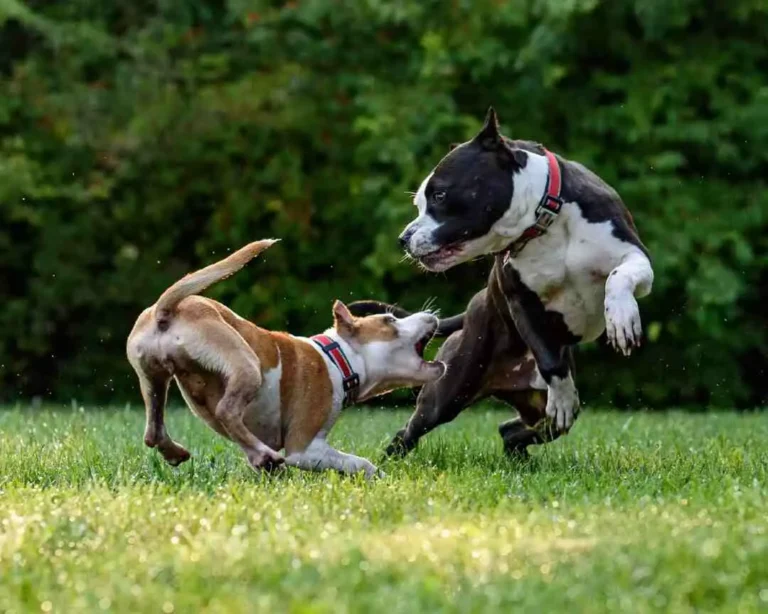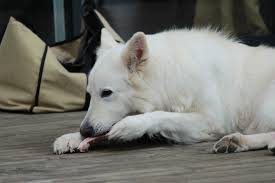Why Does My Dog Smell Like Fish?
Dogs smell in many different ways, but what about your dog smell like fish? though we love our dog very much we definitely do not like the obnoxious fishy smell emanating from the dog’s butt. The smell of the dog depends upon the food they have consumed or on what they have rolled in. However, dogs smelling like fish are symptoms of problems, the fishy odor is the result of secretion of anal glands or sometimes referred to as anal sacs.
What Are Anal Glands?
Anal glands or anal sacs are two small pouches located on either side of your dog’s anus. The walls of the sac are lined with a large number of sebaceous glands or referred to as sweat glands that produce an unpleasant smelling fluid when your dog poops. The smell of the fluid characterizes your dog’s scent.
Dog’s Strange Behaviors
The smell of the anal sac lets other dogs know the important chemical information about your dog. That is why your dog is so interested in sniffing the tail of other dogs when they meet.
Dogs also have a habit of showing their anal sacs when they are scared, which is perfectly normal. However, if your dog smell like fish, chances are there may be something going on with her anal glands.
Anal Sac Disease
Anal sacs or anal gland disease is very common in small dog breeds. Therefore, more often the smaller dog’s butt smells like fish. The largest dog breeds are not usually affected.
Impacted Anal Glands
Impaction occurs when the anal sacs are not emptied completely and the remaining fluid becomes dry. If left untreated they can become abscessed, during this time it will be painful for dogs. The impacted sacs cannot be seen properly, it can be exposed manually by a veterinarian or other professional. During manual exposure, it produces a foul-smelling pasty brown material.
There are several reasons behind the impaction,
- There could be an abnormality in your dog’s anal sacs, or your dog could have a soft stool. Soft stool is not firm enough to express your dog’s anal glands when she defecates.
- Obese dogs are at high risk of anal glands disease, as their sacs do not empty well.
Infections And Abscesses
As seen earlier, anal glands can get infected, If left untreated they can also become abscessed. Infected and abscessed anal sacs can be very painful dogs, and the area may appear discolored or swollen. Untreated abscesses can rupture through the skin. Not enough care to treat the abscessed sac may lead to surgery. The dog also usually needs antibiotics and pain medications to treat the infection.
Anal Sac Tumors
Anal sac tumors limit your dog’s ability to express his anal glands, and dried fluid makes the anal glands feel firm and enlarged. Mostly anal sacs with tumors will not express at all, which may require your veterinarian to take a biopsy and perform an ultrasound to diagnose the problem.
Symptoms Of Anal Sac Disease
There are other symptoms of anal sac disease besides a fishy smell,
- Dogs with irritated anal sacs may bite or lick at their anus. They will have difficulty defecating and they may soot on the floor.
- Scooting is a fairly common sign, but it is a warning of anal sac disease.
- They may even vocalize when during painful defecation.
- Blood and/or pus on your dog’s stool may be noticed.
- Hard lump near the rectum.
- Discoloration around the anus.
If you notice any of these signs, call your veterinarian to sort them at the earliest.
Reasons For Anal Sac Disease
There are certain conditions that may boost the chances of anal sac disease,
- Obesity
- food and environmental allergies
- skin mites
- hypothyroidism
- bacterial or yeast infections of the skin
Preventing Your Dog From Fish Smell
There are a few things you can do to prevent your dogs, though it is not always possible. Take care of your dog’s diet, feed your dog with the right amount of fiber. Provide your dog with plenty of clean water regularly. Maintain your dog’s weight by regular exercises.
Finally, Ensure your dog’s stool is normal.
How To Get Rid Of Dog’s Fishy Smell
Some dog breeds, particularly small dog breeds require their anal glands to be expressed regularly to veterinarians and groomers, as they both perform this service. This can be learned and done if you don’t feel it. But the point to remember is, be aware that manually expressing the anal sac often can cause inflammation and result in scar tissue. So do this only when the anal sacs are not emptying naturally.
In case your dog’s anal sac compaction, your vet will carefully express it and use a softening agent or saline rinse to remove the compaction, especially if the compaction is dry the compaction is particularly dry. After the removal of compacted material, your veterinarian may recommend a higher fiber diet for your dog to help him express his anal sacs naturally.
For Infected or abscessed anal sacs you may need antiseptics to clean and treat them with antibiotics. Then, your vet may recommend hot compresses applied to the area. It may take a few flushings for the infection to resolve.
The worst cases of infection or abscesses may end up with the removal of the anal sac or sacs. Unsuccessful treatment of anal sac disease, as well as anal sac tumors, usually needs to be dealt with by surgical removal. In case of incontinence, most procedures are successful and do not negatively affect your dog’s quality of life.
Anal sac diseases are very common in dogs particularly small dog breeds. The disease is easy to treat once the identified underlying issue is resolved, your dog will no more smell like fish. If your dog requires regular anal gland expression or you find the fishy smell again in your dog, take your dog to the vet or to the groomer.
Credits: Image by Ulrike Mai from Pixabay.






